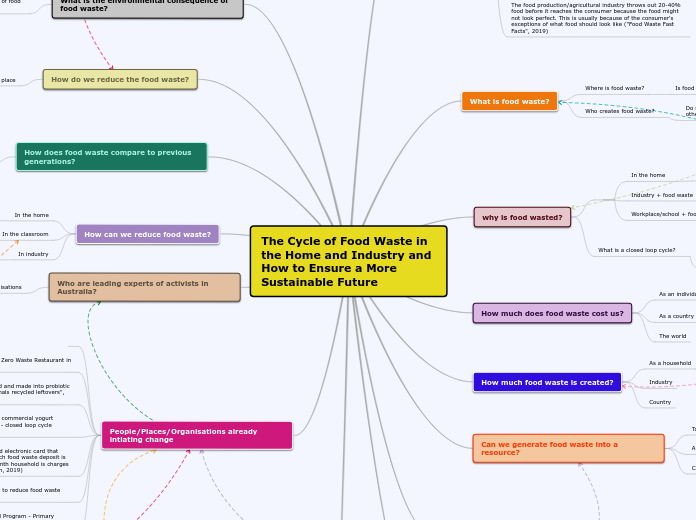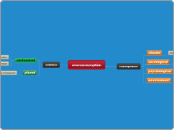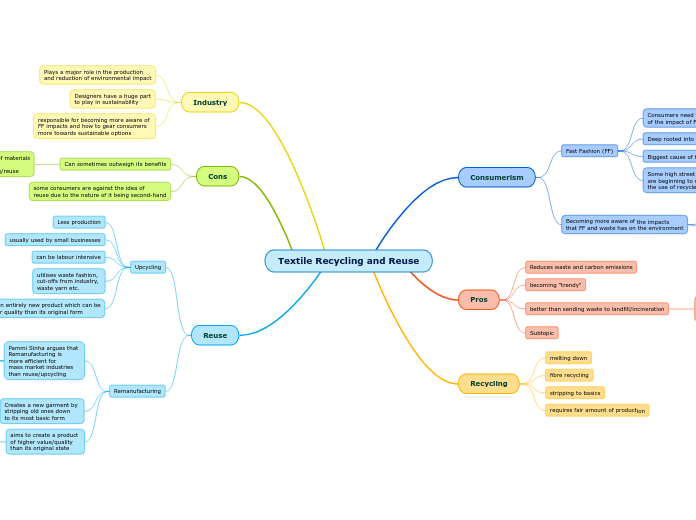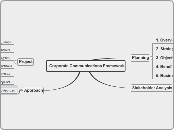The Cycle of Food Waste in the Home and Industry and How to Ensure a More Sustainable Future
Can we have an environmentally sustainable food waste cycle?
People/Places/Organisations already intiating change
New Orleans US - Edible School Yard Program - Primary School composting all food waste and growing food from the compost ("Edible Schoolyard New Orleans", 2019)
Italy + France changing federal laws to reduce food waste (Abellan Matamoros, 2019)
South Korea - Every citizen issue and electronic card that opens public bins for food waste. Each food waste deposit is weighed and at the end of every month household is charges for the amount of food waste (Broom, 2019)
Tennessee US - Left over whey from commercial yogurt production converted into electricity - closed loop cycle (Crampton, 2019)
Japan - Nation's food waste collected and made into probiotic feed for livestock ("Japan feeds animals recycled leftovers", 2019)
Joost Bakker - Food Waste Activist - Zero Waste Restaurant in Melbourne (Walker, 2019)
Who are leading experts of activists in Australia?
Food waste groups or organisations
How can we reduce food waste?
In industry
How can we change consumer's expectation of food?
How can we create better systems or closed loop cycle
In the classroom
School composting and gardening programs
In the home
Use left overs, consumer less and in season, compost
How does food waste compare to previous generations?
How does food waste compare to other cultures?
Can we learn from previous generations and other cultures?
How do we reduce the food waste?
Are the systems already in place
Are the communities that we could learn from
What is the environmental consequence of food waste?
What does the data and statistics say about the effect of food waste on the environment?
Food Waste and links to the curriculum
People use science in their daily lives, including when caring for the environment and living thing (ACSHE022, ACSHE035) (ACARA, n.d.)
Science involves asking questions, describing changes in objects and events (ASCHE034) (ACARA, n.d.)
Objects are made of materials and have observable properties (ACSSU003) (ACARA, n.d.)
Living things have basic needs, including food and water (ACSSU002) (ACARA, n.d.)
Where does food waste start
What is the food waste journey?
Where does it end?
Can we generate food waste into a resource?
Can money be made from food waste
A product
To create energy or fuel
How much food waste is created?
Country
Industry
As a household
what creates the most waste
what is the easiest to reduce
How much does food waste cost us?
The world
As a country
As an individual
Are financial savings a good incentive for people to reduce waste
why is food wasted?
What is a closed loop cycle?
a closed-loop system is a process where every component (e.g. food) is reused within that same system for as long as possible, with the objectives to reuse, recycle, or biodegrade all materials involved so as to produce zero waste (Laura, 2016)
What is food waste?
Who creates food waste?
Do some demographics of people create more food waste than other?
Does gender/age/generation/education effect the amount of food waste created?
Where is food waste?
Is food waste more prominent in some areas more than others
Facts and Statistics
The food production/agricultural industry throws out 20-40% food before it reaches the consumer because the food might not look perfect. This is usually because of the consumer's exceptions of what food should look like ("Food Waste Fast Facts", 2019)
The average Australian household throws out $1,039 worth of waste a year which could pay for half a year's electricity bills ("Food Waste Fast Facts", 2019)
Australians throw away 20% of the food they purchase ("Food Waste Fast Facts", 2019)
the Australian Food and Grocery Council has a goal to reduce waste to landfill by 40 per cent by 2020 (Working together to reduce food waste in Australia, 2019)
8% of greenhouse gases are caused by food waste. Green house gases cause the planet to heat ("Food Waste Facts", 2019)
A head of lettuce takes 25 years to de-compost in landfill due to the lettuce not being exposed to oxygen and its inability to aerobic decomposition (Kye & Chai, 2017)









